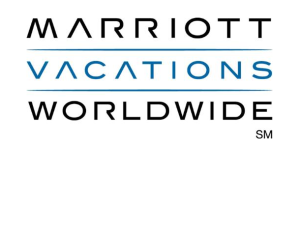Timeshare Article: “Blame the Packaging”
Friday, March 31, 2006
Hot off the press: here’s a timeshare article I just finished drafting. I’ll warn you; it’s a long read, but at the same time it covers a lot of ground. The “Blame the Packaging” theme might seem familiar to our subscribers…
These days, timeshares are a hot topic of discussion. Whether you’re on the Internet or out and about in the real world, you’re likely to encounter an overabundance of conflicting information on the subject.
For example, it seems like everyone has an opinion on timeshares, but no one agrees. There appears to be a significant dichotomy between two rival factions of timeshare owners. Put plainly, some people love their timeshares and others would do just about anything to get rid of them.
In no other industry do customers display this kind of love-hate relationship with a product. Moreover, there appears to be no middle ground. People will go to extraordinary lengths to either bash or praise the concept of timeshare.
Some grumble, “It’s a lousy travel scam!”
Others proclaim, “It’s the best thing that’s ever happened to our family!”
It’s clear that timeshares have developed an image problem. Turning back the clock, we can almost identify this industry’s first appearance in the sordid light of bad publicity.
Timeshare is a unique product, sharing similar features with both traditional real estate as well as hotel accommodations. For this reason, even to this day many local governments do not agree on how timeshare should be classified, regulated or taxed. In the 1970’s, when timeshares first became popular in the United States, there was no legislation in place to protect buyers from unethical contractual obligations. Furthermore, there were few internal forces regulating the conduct of the industry. Soon enough, in this “wild west” environment, the bad boys came out to play.
The legal ambiguities of the time caused many otherwise decent timeshare salespeople to bend and even break existing laws. The product itself began to suffer, as in many cases timeshare buyers did not receive the amenities, features, or quality promised in the sales presentations. Outright fraud posed a serious problem at this time. People would buy preconstruction timeshare units only to find out that they had purchased time in an undeveloped swampland. A lot of money hanged hands over fake deeds and unfair contracts, and the perpetrators disappeared.
Fortunately for the industry, lawmakers began to react to these problems, and consumer protection initiatives were signed into law in many areas of the United States. At the same time, established big-name hoteliers and others in the lodging and hospitality industries began to realize the value of timeshare, and started investing in large-scale development of timeshare resorts. These actions had the combined effect of driving out smaller, less reputable timeshare operators, while at the same time increasing consumer confidence in the product of timeshare. As a result, timeshare development and subsequent sales figures have increased consistently since the late 1970’s. In recent years, expansion has been particularly evident in areas like Hawaii, Las Vegas, and Dubai, and strong industry-wide growth is predicted for the future in many parts of the world.
However, this doesn’t mean that timeshare today is trouble-free. It is common knowledge that many timeshare sales and marketing methods, even those currently in widespread practice, are antiquated, unethical, misleading, wasteful, and sometimes just downright crooked. While timeshare has cleaned up its act since the 70’s, the problems caused by high-pressure marketing and misleading contracts are still serious enough to threaten the entire industry as a whole. Perhaps most unsettling is that the resorts themselves often exacerbate this condition rather than attempt to heal it.
Here’s how most new timeshares are sold: an OPC (short for “off-property consultant”) hangs around a busy area frequented by tourists. He or she immediately spots an easy mark, strikes up conversation, and soon offers an inducement (free tickets to area attractions, depending on location) in exchange for attendance at a timeshare sales presentation. Because he/she is paid for each person referred in this manner to the resort’s sales staff, prospects are often encouraged to lie about their level of income and marital status in order to appear eligible.
Next comes the timeshare sales presentation. Timeshare salespeople will stop at nothing to get their prospects to sign. If these people can’t afford a timeshare, what does it matter to the salesman? He is just doing his job. What neither party realizes is that this procedure is part of an inherently unhealthy marketing concept, which focuses entirely on short-term gain at the expense of long-term profits and customer satisfaction.
The staffing and free gifts alone constitute a significant expense for the resort. How is this paid for? By inflating the price of each and every timeshare unit sold. This is why, immediately following a sale, most timeshares depreciate significantly.
Here’s a financial analogy: ever heard of a “pump and dump”? This term is applied to certain stock fraud schemes. A stockbroker will acquire a huge amount of almost valueless stock. He will then proceed to hype this stock, disseminating false predictions about a dramatic increase in value within a short period of time. As a result of this hype, interest is piqued, demand for the stock rises, and so does the price. The fraudster will then unload all of his hyper-inflated stocks, profiting tremendously at the hands of investors who genuinely believed that this stock was a good investment. At the end of the day, the investors are left with worthless stock, and the crook skips town.
As a natural consequence of the resort marketers’ “pump and dump” business model, a lot of people are left with timeshares they either don’t want, won’t use, can’t afford, or any combination thereof. These folks have learned about timeshares the hard way. Suddenly, the resale value of their timeshare has abruptly depreciated by half. Furthermore, the “pump and dump” timeshare sales strategy, combined with the fast pace of resort development, has created a market vastly favoring the buyer. This in turn has made it almost impossible for timeshare owners to resell or even rent their properties.
Of course, these market conditions present a challenge to a timeshare seller. Fortunately, a resale market exists for timeshare properties. The main challenge, for most people, lies in finding it.
With buyers spread thin, a timeshare must be priced aggressively in order to sell. Not only that, a timeshare must be positioned where potential buyers can see it. This is the driving force behind successful online timeshare resale companies, where the best-positioned websites can connect the most sellers with qualified, targeted buyer traffic.
For getting rid of a timeshare, newspaper advertising does not work. Period. People read the want ads if they are looking for jobs, cars, or plumbers- not timeshares. For a successful timeshare sale, a property needs to be listed somewhere where it will be seen by potential timeshare buyers. Thanks to relatively recent technological advances made by search engines like Google, online marketing has been revolutionized in recent years. It is now possible to position a timeshare for-sale-by-owner advertisement where the only people who see it are those who are actively searching for timeshares to buy. This is what is meant by targeted traffic.
The axiom “you get what you pay for” is especially apt when comparing timeshare resale companies. At the same time, due diligence is vital when you consider working with any online company. Only choose a resale advertising company or licensed timeshare broker with a perfect Better Business Bureau record. If you are cold-called by someone purporting to represent a resale company, hang up the phone immediately, as cold-calling is often the first symptom of a resale fraud in the making.
Another common resale fraud practiced in a number of countries centers around convincing the buyer that he/she can sell the timeshare for a profit. This is simply not true. Under no circumstances should a timeshare property be considered an investment for economic gain.
Remember that any reputable online timeshare resale company will offer a money-back guarantee, in the event that the timeshare does not sell. In fact, it is recommended to only use a company offering a money-back guarantee. Not only does this save a lot of aggravation in the long run, it has the potential to screen out resale fraudsters.
Many timeshare sellers pit competing resale companies against each other, to see who sells first. The “losing” company refunds the advertising cost. This can work out to a seller’s advantage, when there are a lot of smaller, less visible timeshare sites which charge a minimal amount (less than $100) to advertise a property. The more exposure you can amass, the greater your chance of finding a buyer quickly. This is why enlisting multiple companies to advertise a timeshare for sale (or rent) makes perfect sense.
What all this means for the timeshare buyer, however, is that a wide variety of timeshares are available at surprisingly low cost. Consider that resale units can most often be bought for about half of the resort developer’s original asking price, with no sales presentation to undergo. Timeshare buyers can benefit tremendously, if they choose to “buy resale, not retail.”
In conclusion, timeshares can and often do provide a lifetime of happy vacations. Steering clear of the problems associated with the marketing of new timeshares will help keep your future vacations stress-free.
After all, isn’t that the whole point of taking a vacation?


